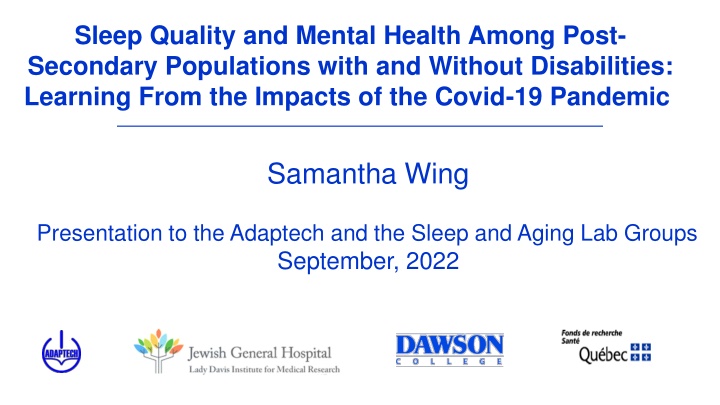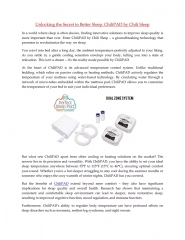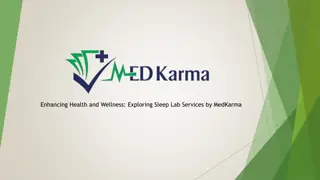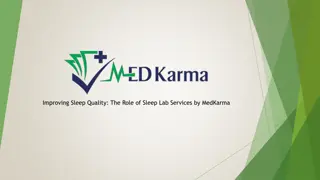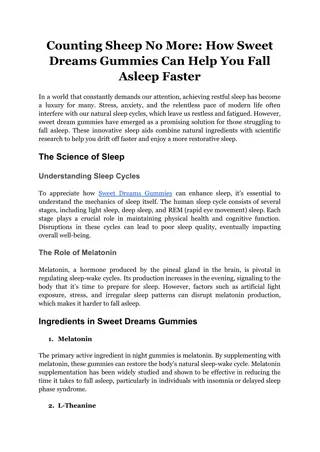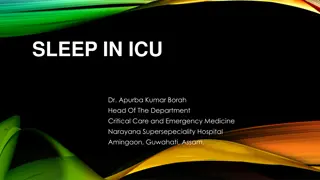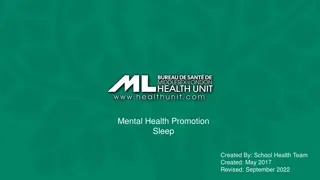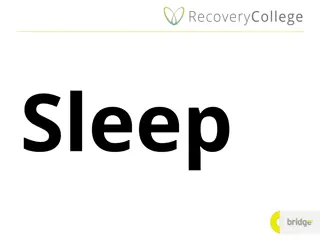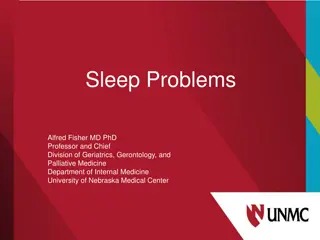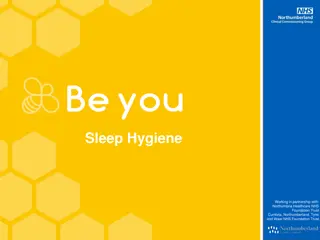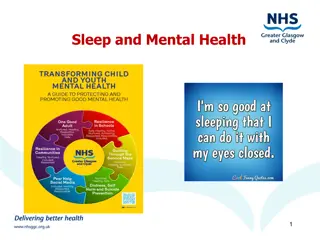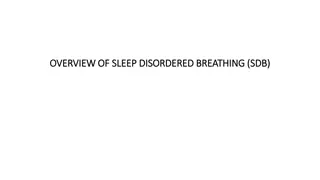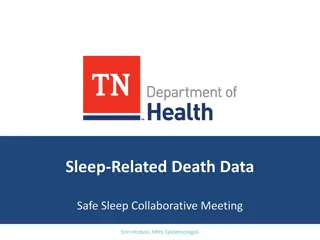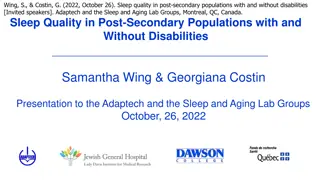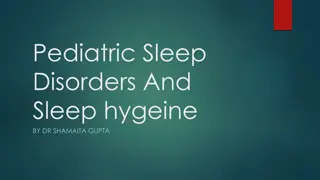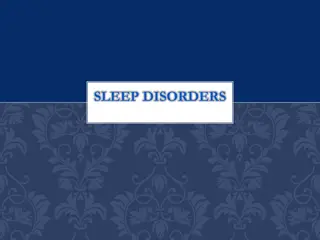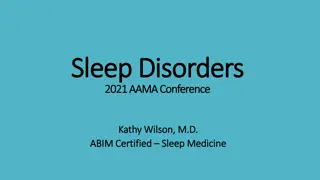Sleep Quality & Mental Health Among Post-Secondary Populations: Covid-19 Impacts
This presentation delves into the effects of Covid-19 on sleep quality and mental health among post-secondary populations, comparing those with and without disabilities. The research team led by Samantha Wing aims to understand the impact of the pandemic on learning and working habits, examining positive and negative outcomes and identifying strategies to maximize positive outcomes and mitigate negative ones. Through a two-phase study involving focus groups and surveys, the goal is to uncover profiles at risk for negative sleep and well-being and develop recommendations for resilience.
Download Presentation

Please find below an Image/Link to download the presentation.
The content on the website is provided AS IS for your information and personal use only. It may not be sold, licensed, or shared on other websites without obtaining consent from the author.If you encounter any issues during the download, it is possible that the publisher has removed the file from their server.
You are allowed to download the files provided on this website for personal or commercial use, subject to the condition that they are used lawfully. All files are the property of their respective owners.
The content on the website is provided AS IS for your information and personal use only. It may not be sold, licensed, or shared on other websites without obtaining consent from the author.
E N D
Presentation Transcript
Sleep Quality and Mental Health Among Post- Secondary Populations with and Without Disabilities: Learning From the Impacts of the Covid-19 Pandemic Samantha Wing Presentation to the Adaptech and the Sleep and Aging Lab Groups September, 2022
Research Team Fichten, Catherine Asuncion, Jennison Bailes, Sally Georgiana Costin Creti, Laura De Saedeleer, Sylvie Havel, Alice Jorgensen, Mary Libman, Eva Paul, Louise Rizzo, Dorrie Wileman, Susie Wing, Sam
Presentation Objectives Questions to address Goals of the investigation Methods Phase 1 Phase 2 Hypotheses 3
Questions to Address What has been the impact of Covid-19 sleep related experiences On "back to face-to-face teaching, learning and working" What are the positive and negative outcomes For whom (sex, gender, age, disability, group Student, faculty, other staff Under what circumstances Synchronous / asynchronous classes, living arrangements Given "back to face-to-face" how can Positive outcomes be maximized Negative outcomes be mitigated 4
Goals Examine The "past" (remote learning) The "present" (face-to-face) Identify Profiles of those at risk for negative sleep and well-being Post-secondary students with and without disabilities Post-secondary faculty and other staff with and without disabilities Factors Associated with increased risk That are protective and/or enhance resilience Develop recommendations 5
Methods Two phases Individuals who were present During both remote and face-to-face learning Phase 1: consist of focus groups Phase 2: LimeSurvey comprising validated questionnaires We will study the following post-secondary groups Students: (1) with (2) without disabilities Faculty: (1) with (2) without disabilities Staff (i.e., non-teaching employees): (1) with (2) without disabilities 6
Phase 1: Focus Groups Research Ethics Board certificate obtained 12 Zoom sessions 75-minutes 6-10 individuals for each of the 3 groups Prior to the focus group meeting Participants will be given the questions and the consent form 7
Phase 1: Focus Groups (contd) Questions Positive & negative contributors to sleep & well-being During the Covid-19 era During the return to face-to-face teaching, learning and working, Impact of the remote learning period on face-to-face experiences Responses will be coded Used to formulate Phase 2 open-ended LimeSurvey questions 8
Phase 2: LimeSurvey Self-report: listing of participants' disabilities Questionnaires & questions that inquire about Present: trait measures Sex, gender, disability, personality, anxiety, distance from school Past & present evaluations Sleep-related Well-being chronobiology Computer-related comfort Open-ended questions Family, work circumstances, health, topics from phase 1 focus groups Banerjee, M., Lalor, A. R., Madaus, J. W., & Brinckerhoff, L. C. (2020). A survey of postsecondary disability service websites post ADA AA: Recommendations for practitioners. Journal of Postsecondary Education and Disability, 33(3), 301-310. 9
Hypotheses Research is primarily descriptive Phase 2: we predict that individuals with Disabilities & those who score high on Neuroticism and Trait Anxiety Will experience more sleep & well-being problems both past & present Problem family situations (e.g., young children, elderly parents) Will have better sleep and well-being during the present than the past High Extraversion will have worse scores during the past than the present On sleep, depression, anxiety, quality of life 10
